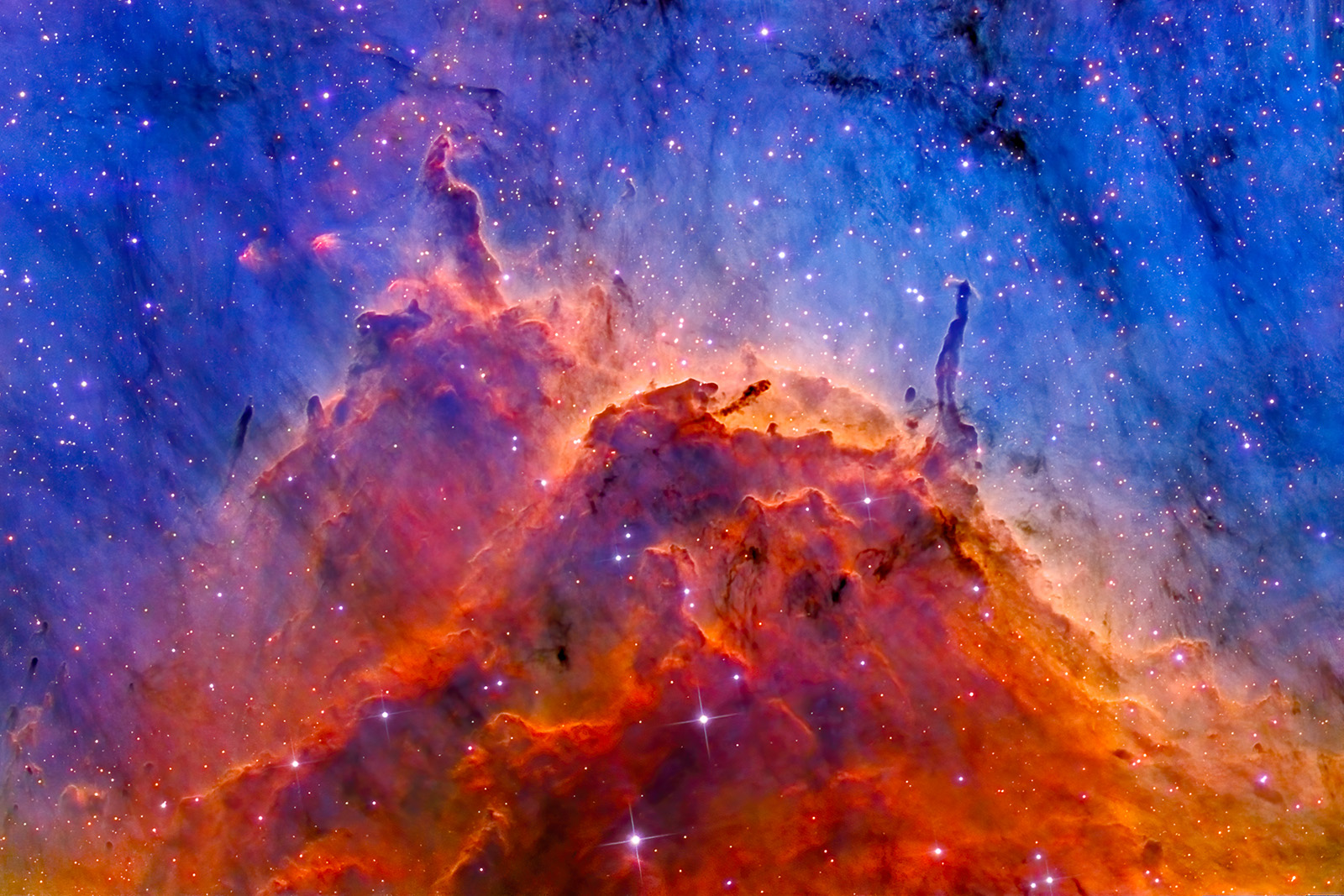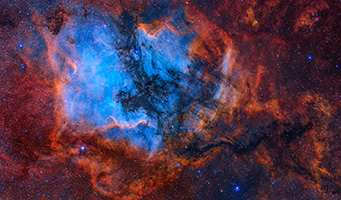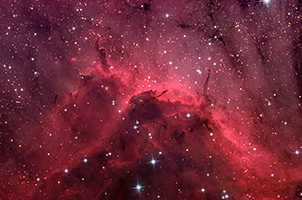
 |
The Pelican Nebula |
|||||||||||||||||||||||
About This PhotographThis is a portion of the Pelican Nebula, in the constellation of Cygnus, the Swan. The "mountains" in this image are formed by an area of denser gas and dust that is slowly being eroded away by the ultraviolet radiation from nearby young, hot stars, forming what is known as an ionization front. By using special filters to isolate the light from individual chemical elements, and assigning these elements to different colors, subtle variations in the energy levels within the cloud can be brought into stark detail. Light from oxygen atoms is shown as blue, and represents the highest energy. Red represents sulphur, and details the areas of lowest energy level, right at the boundary that is the ionization front. The light from hydrogen atoms is used for the green channel and represents an intermediate energy level. Click here for a natural-color view of the same region. For a wide-field view of the Pelican and North America Nebula region, click here. | |||||||||||||||||||||||
|
Related Photographs | |||||||||||||||||||||||
|---|---|---|---|---|---|---|---|---|---|---|---|---|---|---|---|---|---|---|---|---|---|---|---|
| |||||||||||||||||||||||
|
|||||||||||||||||||||||
|
Publication Data for this Photograph
|
|||||||||||||||||||||||



